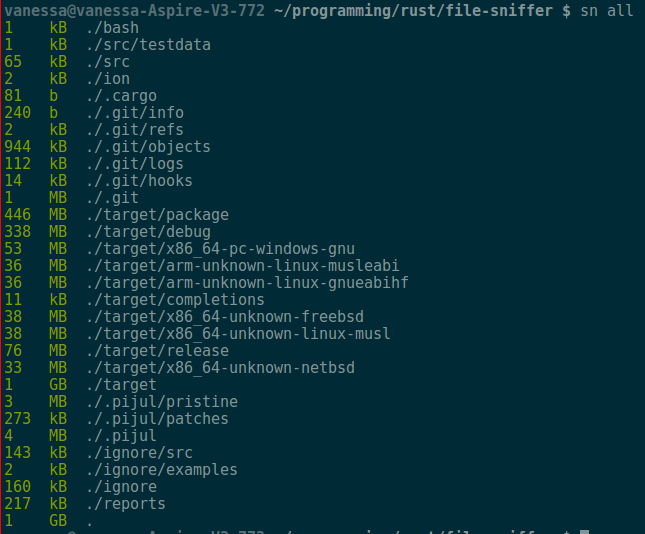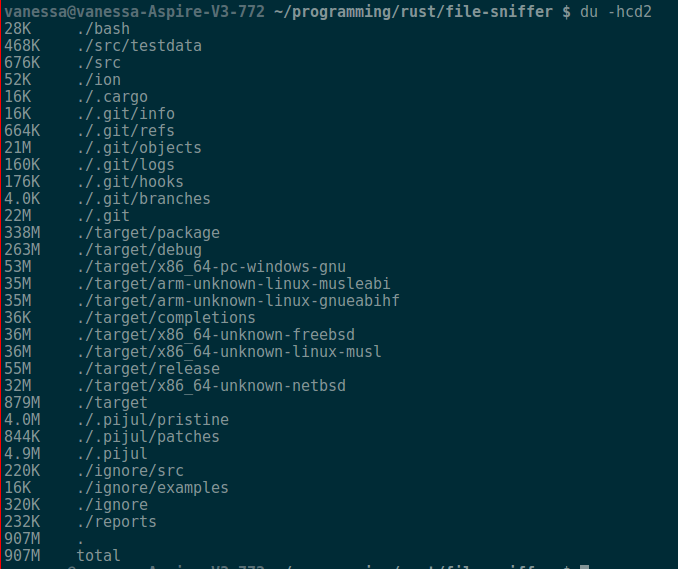If you do a significant amount of programming, you'll probably end up with
build artifacts scattered about. sn is a tool to help you find those
artifacts. It's especially useful when you're writing build systems,
because you can make sure your clean command gets everything.
As of recently, sn is also a replacement for du. It has far nicer
output, saner commands and defaults, and it even runs faster on multicores.
The easiest way to install for Linux or Windows is to download a binary from the releases page.
If your platform doesn't have binaries, get cargo. Then:
bash
$ cargo install tin-summer
Make sure you are on nightly; otherwise
bash
rustup run nightly cargo install tin-summer
Currently, sn looks for files that either have an extension associated with
build artifacts, as well as executable files listed in the relevant
.gitignore, .ignore, or darcs boringfile.
Search current directory for directories with build artifacts:
bash
$ sn ar
Look in $DIR for build artifacts and sort them by size:
bash
$ sn ar $DIR --sort
Look for artifacts or directories containing artifacts that occupy more than 200MB of disk space:
bash
$ sn ar -t200M
After setting BASH_COMPLETIONS_DIR or FISH_COMPLETIONS_DIR, you can use the
bash or fish features like so:
bash
$ cargo install --features fish tin-summer
To turn off colorized output:
bash
export CLICOLOR=0


The intent is to support basically anything, so if your DOC is not on the list, feel free to open a PR or start an issue.
The name is a pun on Günter Grass' novel Die Blechtrommel or The Tin Drum in
English. Thus, the binary is sn, and it sums up file sizes in directories.